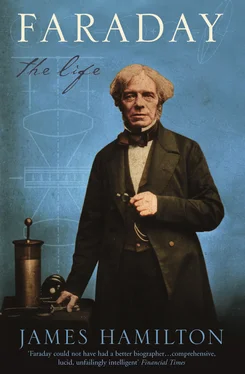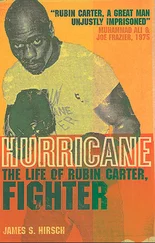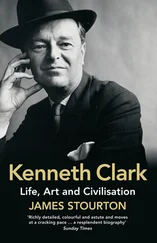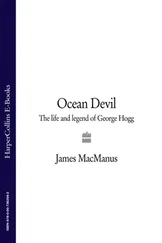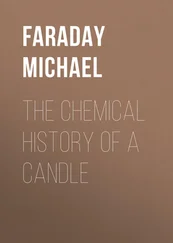From 11 October to 7 December there is a pause in the letters Faraday sent to Abbott. He broke his silence on 7 December, apologising that he had six unanswered letters from Abbott in his portfolio. He pleaded ‘inability’, which covers a multitude of possibilities, but which may suggest that while he was being loaded with bookbinding work by his ‘disagreeable master’, 37he was also taking on as much secretarial work as he could for Sir Humphry. His new employer de la Roche evidently got wind of Faraday’s ambitions in science, and for that reason perhaps gave him ‘so much trouble that he felt he could not remain in his place’. 38Nevertheless de la Roche, who had no children himself, made Faraday an offer that he thought the young man could not easily refuse. Impressed by Faraday’s bookbinding skills, he promised ‘on certain conditions’ to transfer his business to him, and ‘thus to make him a Man of Property’. 39This Faraday did refuse, despite the risk of immediately running foul of de la Roche’s passions, but having been brought up by Sandemanian parents, he would have found it easy to resist becoming a man of property, and thus have the vote, two civic distinctions which Sandemanians treated with disdain.
Faraday now found himself in a very difficult and uncertain personal position. In one corner he had an unpredictable master whom he had unwisely frustrated; in another the teachings of a church which he respected; in a third he faced impending poverty in the all-too-real possibility of losing his bookbinding job; and in a fourth he had to consider the money he gave to his widowed mother, a landlady in straitened circumstances. Colouring all this in a gloomy sweep of pallid grey was his lack of ready patronage, and no sign of permanent work in science, the one sphere which truly attracted him. The only chink of light was his brief employment with Davy, and the mild interest that Sir Humphry was showing in him. But even Davy, who had after all been Faraday’s second choice of employer after Sir Joseph Banks, had advised Faraday to stick to the bookbinding in the long run. 40No correspondence from or to Faraday survives from the first two months of 1813, but on 19 February there was a punch-up at the Royal Institution, and out of this petty but violent incident Michael Faraday got the job in science that he coveted, and the future began.
During the year following Davy’s resignation the day-to-day management of the Royal Institution was in the hands of the new Professor of Chemistry, William Thomas Brande. He was an uncharismatic, plodding man, who was described in later years as giving lectures that were ‘eminently sound and useful’, and, in a remarkable sequence of negatives that give a half-hearted cheer to him as Sir Humphry Davy’s successor, ‘he was never brilliant or eloquent, but his experiments never failed’. 41Brande expected his lectures to be set up carefully for him, with all the necessary instruments, chemicals and illustrations in place. The laboratory assistant William Payne seems to have failed to do the job properly on 19 February, and the Institution’s instrument-maker John Newman told him so. Payne punched Newman; they shouted and brawled; the superintendent William Harris heard the ‘great noise’, and came to investigate. Newman complained to Harris that Payne had hit him, Harris rose to his full height and charged Payne with the offence, and Payne went off muttering imprecations. The Royal Institution Managers were told of this at their meeting three days later, and Payne was sacked. 42
As Honorary Professor of Chemistry, Davy took the initiative for finding somebody to fill the gap, and Michael Faraday came to mind. So, quite late in the evening of 22 February, a gleaming carriage with a footman up on the box beside the driver made its way down Weymouth Street, and stopped outside number 18. 43The horses pawed and shuddered in the cold evening air, and blew explosively through their nostrils. The footman climbed down carrying a note, and banged hard on the door. Looking down from his room, where he was undressing for bed, Faraday heard somebody in the house open the door, and heard too a muffled conversation. The door closed softly, and the carriage rolled away into the night. ‘A letter has come from Sir Humphry Davy for Mike!’ somebody said, and ran up with it to Faraday’s room. Faraday broke the seal and read that Sir Humphry Davy requested that Mr Michael Faraday call on him at the Royal Institution the following morning. And then, perhaps, Michael Faraday went, as he had planned, to bed. 44
We know all this from Benjamin Abbott, who will certainly have been told of it in excited tones by Faraday in the days following. Faraday might also have described to Abbott the interview with Davy, which apparently took place in the anteroom to the lecture theatre, by the window nearest to the corridor. 45Both Davy and Faraday recalled their earlier interview in the same room, by the same window. Davy had warned Faraday then about the dangers of giving up a secure trade, for which there would always be a need, for the insecure profession of science.
‘Science is a harsh mistress,’ Faraday recalled Davy saying, remembering as he did so that that was a phrase of Sir Isaac Newton’s. Davy went on to warn the young man that science ‘poorly rewarded those who devoted themselves to her service’.
‘But philosophic men,’ Faraday rejoined spiritedly, ‘learn to cultivate superior moral feelings.’
Davy smiled at this idealism, thinking of some of the charlatans he had met and the priority disputes he had experienced in his years in science. ‘I will leave the experience of a few years to set you right on that matter.’ 46
This morning, however, Davy did not try to dissuade Faraday. He urgently needed somebody reliable to replace Payne, and Michael Faraday had the ability and enthusiasm for the task.
‘Are you of the same mind as you were when you called on me last year?’ he asked.
‘I am sir.’
‘Then I will offer you the place of assistant in the laboratory of the Royal Institution, in the situation of Mr William Payne, lately employed here. Will you accept?’
Faraday grinned with delight, shook Sir Humphry’s hand warmly, and walked briskly out of the Royal Institution into Albemarle Street. At the next meeting of the Managers, on 1 March, Sir Humphry Davy drew attention to the vacancy and said:
I have the honour to inform you that I have found a person who is desirous to occupy the situation in the Institution lately filled by William Payne. His name is Michael Faraday. He is a youth of twenty-two years of age. As far as I have been able to ascertain, he appears well fitted for the situation. His habits seem good, his disposition is active and cheerful, his manner intelligent. He is willing to engage himself on the same terms as those given to Mr Payne at the time of quitting the Institution.
The Managers considered the matter, looked enquiringly at one another, and the chairman, Charles Hatchett, announced: ‘We resolve that Michael Faraday be engaged to fill the situation lately occupied by Mr Payne on the same terms.’ 47
That is the brisk report of Faraday’s engagement according to the minutes of the Royal Institution. In between the offer and the formal engagement, however, Faraday courageously and sensibly negotiated the terms he would accept. Notwithstanding how rapidly his luck had compounded over the past few days, he pressed Davy for the best deal possible. This led to the final agreement, which echoed the one that Davy himself had reached with the Managers in 1801. 48Faraday was to be provided with a regular supply of aprons by the Institution, and allowed the use of the laboratory apparatus for his own experiments. Further, he was to be given two attic rooms in 21 Albemarle Street, as much coal and candles as he needed for heat and light, and a salary of one guinea a week. This was a cut from his pay as a young bookbinder, but with accommodation, aprons, candles and heating thrown in it was worth much more. 49The post that Faraday had been given was later described as ‘Fire-Lighter, Sweeper, Apparatus-cleaner and washer’, or ‘Fag and Scrub’. 50That is the basic, lowest-of-the-low runabout servant’s job that might by one kind of character be considered a dead end, but by another a door opening onto a broad, bright new life of learning and discovery.
Читать дальше
